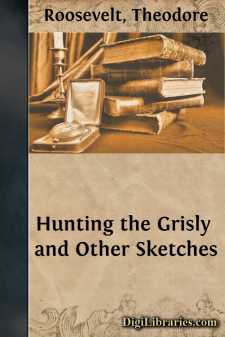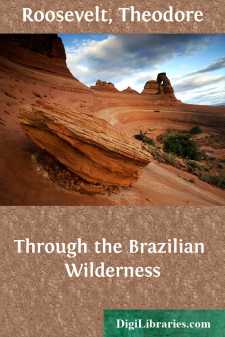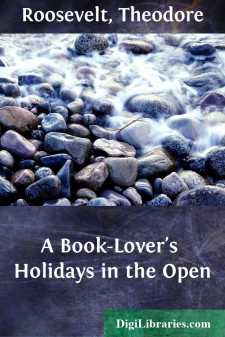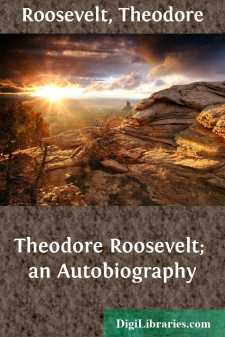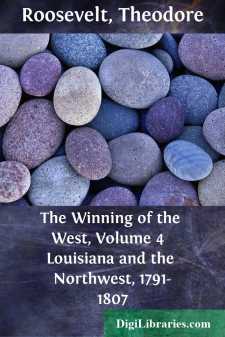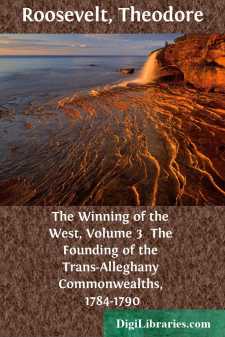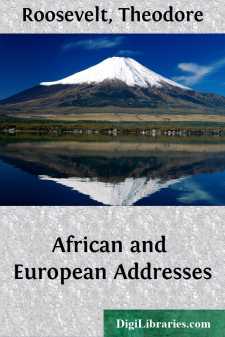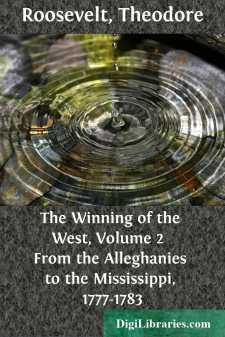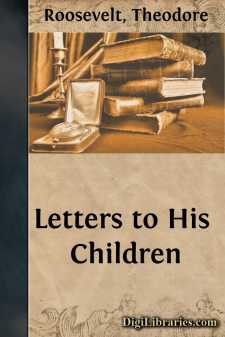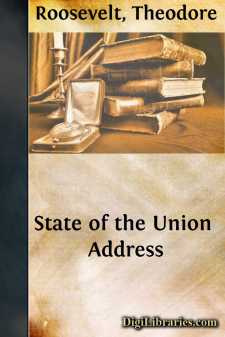Categories
- Antiques & Collectibles 13
- Architecture 36
- Art 48
- Bibles 22
- Biography & Autobiography 813
- Body, Mind & Spirit 142
- Business & Economics 28
- Children's Books 17
- Children's Fiction 14
- Computers 4
- Cooking 94
- Crafts & Hobbies 4
- Drama 346
- Education 46
- Family & Relationships 57
- Fiction 11829
- Games 19
- Gardening 17
- Health & Fitness 34
- History 1377
- House & Home 1
- Humor 147
- Juvenile Fiction 1873
- Juvenile Nonfiction 202
- Language Arts & Disciplines 88
- Law 16
- Literary Collections 686
- Literary Criticism 179
- Mathematics 13
- Medical 41
- Music 40
- Nature 179
- Non-Classifiable 1768
- Performing Arts 7
- Periodicals 1453
- Philosophy 64
- Photography 2
- Poetry 896
- Political Science 203
- Psychology 42
- Reference 154
- Religion 513
- Science 126
- Self-Help 84
- Social Science 81
- Sports & Recreation 34
- Study Aids 3
- Technology & Engineering 59
- Transportation 23
- Travel 463
- True Crime 29
Theodore Roosevelt
Theodore Roosevelt, the 26th President of the United States, was not only a distinguished statesman but also a prolific writer, authoring more than 35 books on topics ranging from history and politics to nature and adventure. His works include "The Naval War of 1812," which established his reputation as a serious historian, and "The Rough Riders," an account of his experiences leading a volunteer cavalry regiment during the Spanish-American War. Roosevelt's writings reflect his varied interests and robust personality, contributing significantly to American literature and historical scholarship.
Author's Books:
Sort by:
CHAPTER I.—THE BISON OR AMERICAN BUFFALO. When we became a nation in 1776, the buffaloes, the first animals to vanish when the wilderness is settled, roved to the crests of the mountains which mark the western boundaries of Pennsylvania, Virginia, and the Carolinas. They were plentiful in what are now the States of Ohio, Kentucky, and Tennessee. But by the beginning of the present century they had...
more...
I. THE START One day in 1908, when my presidential term was coming to a close, Father Zahm, a priest whom I knew, came in to call on me. Father Zahm and I had been cronies for some time, because we were both of us fond of Dante and of history and of science—I had always commended to theologians his book, "Evolution and Dogma." He was an Ohio boy, and his early schooling had been obtained in...
more...
FOREWORD The man should have youth and strength who seeks adventure in the wide, waste spaces of the earth, in the marshes, and among the vast mountain masses, in the northern forests, amid the steaming jungles of the tropics, or on the deserts of sand or of snow. He must long greatly for the lonely winds that blow across the wilderness, and for sunrise and sunset over the rim of the empty world. His...
more...
FOREWORD Naturally, there are chapters of my autobiography which cannot now be written. It seems to me that, for the nation as for the individual, what is most important is to insist on the vital need of combining certain sets of qualities, which separately are common enough, and, alas, useless enough. Practical efficiency is common, and lofty idealism not uncommon; it is the combination which is...
more...
CHAPTER I. ST. CLAIR'S DEFEAT, 1791. The Westward March of the Backwoodsman. The backwoods folk, the stark hunters and tree-fellers, and the war-worn regulars who fought beside them in the forest, pushed ever westward the frontier of the Republic. Year after year each group of rough settlers and rough soldiers wrought its part in the great epic of wilderness conquest. The people that for one or...
more...
CHAPTER I. THE INRUSH OF SETTLERS, 1784-1787. At the beginning of 1784 peace was a definite fact, and the United States had become one among the nations of the earth; a nation young and lusty in her youth, but as yet loosely knit, and formidable in promise rather than in actual capacity for performance. The Western Frontier. On the western frontier lay vast and fertile vacant spaces; for the Americans...
more...
Introduction Mr. Roosevelt as an Orator In the tumult, on the one hand of admiration and praise and on the other of denunciation and criticism, which Mr. Roosevelt's tour in Africa and Europe excited throughout the civilized world, there was one—and I am inclined to think only one—note of common agreement. Friends and foes united in recognizing the surprising versatility of talents and of...
more...
CHAPTER I. THE WAR IN THE NORTHWEST, 1777-1778. The Tribes Hold Councils at Detroit. In the fall of 1776 it became evident that a formidable Indian war was impending. At Detroit great councils were held by all the northwestern tribes, to whom the Six Nations sent the white belt of peace, that they might cease their feuds and join against the Americans. The later councils were summoned by Henry...
more...
INTRODUCTION Most of the letters in this volume were written by Theodore Roosevelt to his children during a period of more than twenty years. A few others are included that he wrote to friends or relatives about the children. He began to write to them in their early childhood, and continued to do so regularly till they reached maturity. Whenever he was separated from them, in the Spanish War, or on a...
more...
To the Senate and House of Representatives: The Congress assembles this year under the shadow of a great calamity. On the sixth of September, President McKinley was shot by an anarchist while attending the Pan-American Exposition at Buffalo, and died in that city on the fourteenth of that month. Of the last seven elected Presidents, he is the third who has been murdered, and the bare recital of this...
more...


